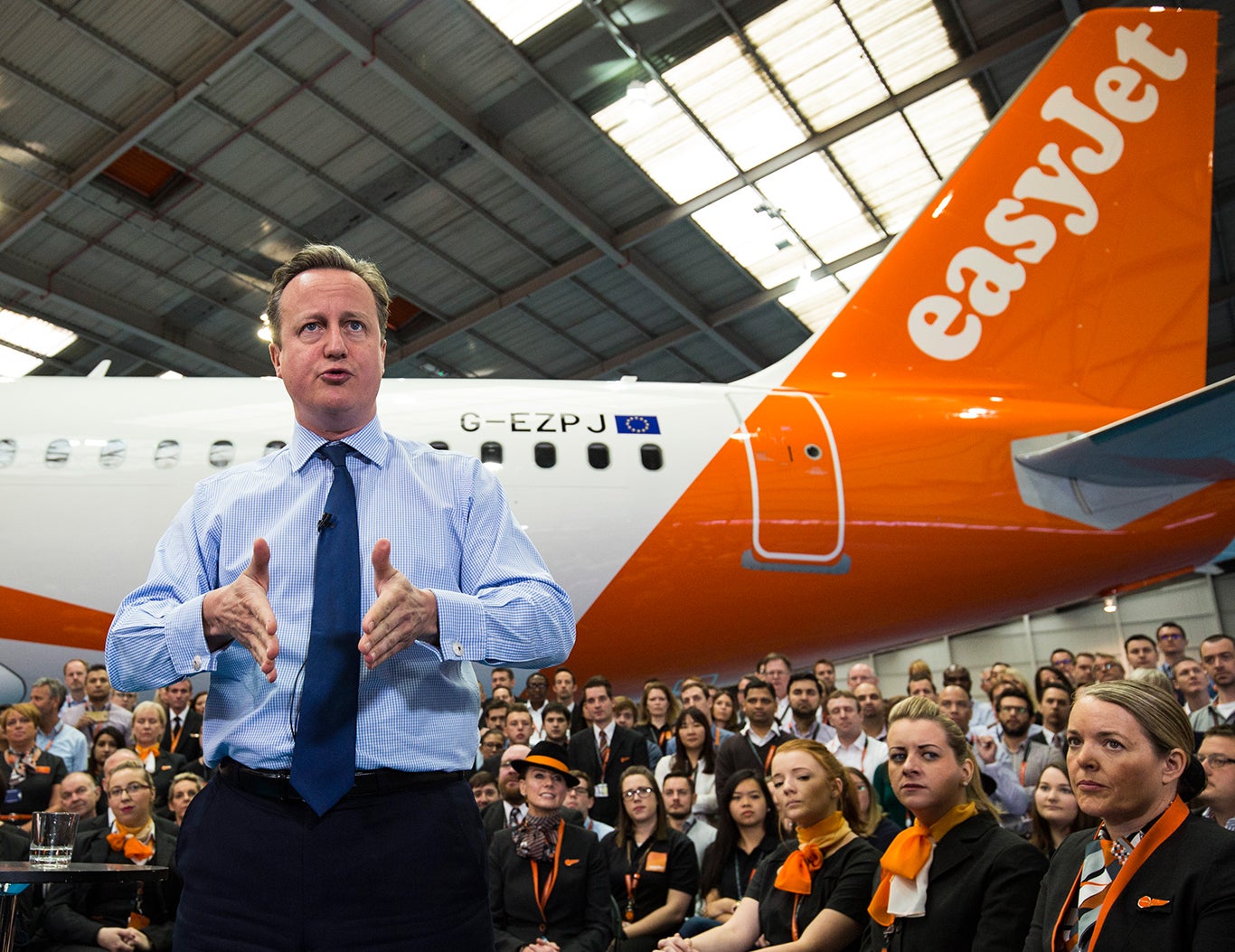Will Brexit help or damage British businesses?
The big EU questions: With a month to go before the potentially epoch-making vote on British membership of the EU, the debate so far has been characterised by bias, distortion and exaggeration. So from now until the referendum we will be running a series of question and answer features that will explain the most important issues involved in a detailed, dispassionate way to help inform your decision

Your support helps us to tell the story
From reproductive rights to climate change to Big Tech, The Independent is on the ground when the story is developing. Whether it's investigating the financials of Elon Musk's pro-Trump PAC or producing our latest documentary, 'The A Word', which shines a light on the American women fighting for reproductive rights, we know how important it is to parse out the facts from the messaging.
At such a critical moment in US history, we need reporters on the ground. Your donation allows us to keep sending journalists to speak to both sides of the story.
The Independent is trusted by Americans across the entire political spectrum. And unlike many other quality news outlets, we choose not to lock Americans out of our reporting and analysis with paywalls. We believe quality journalism should be available to everyone, paid for by those who can afford it.
Your support makes all the difference.To judge by most of the statements from leading business people, plus the Confederation of British Industry (CBI), the business community seems to be against the idea of Brexit. Is that right?
Well, not all the business community is against Brexit, but the big guns are pretty much unanimous that it would be a bad idea to get out. The general view is that there will be some damage, though most business leaders qualify this by saying their own businesses will cope. They are more worried about the economy as a whole.
If there is a pattern, it is that big businesses, including foreign-owned ones, are anti-Brexit, while significant minority of smaller British-owned ones are Leavers.
Let’s start with the organisations that represent business. What about the CBI?
Well, it came out firmly and aggressively against it. It produced a paper saying that leaving would cost nearly a million jobs and a loss of £100bn of national income by 2020. You can question these numbers, but what you can’t question is that this is the view that the majority of its members want to get across.
And the others – for example, the Institute of Directors?
They are more nuanced. The IoD carried out a poll of its members showing that three-quarters of those responding wanted to stay in. But while it is in favour of remaining, it has hosted events presenting both sides of the argument.
A small majority of the members of the Federation of Small Businesses are in favour of remaining, as are the members of the British Chambers of Commerce. But the latest poll of the BCC members shows the Remain camp, while still a majority, is losing some ground. The BCC shift is interesting because its director-general, John Longworth, had to resign following comments that Britain’s long-term prospects could be brighter outside the EU.
Let’s move from organisations that represent business to the businesses themselves. How does the split stack up?
The heads of the majority of publicly quoted companies have been fairly cautious in their public statements. However, more than one-third of the FT100 chiefs did write a collective letter to The Times voicing their opposition to Brexit, warning that it “would deter investment, threaten jobs and put the economy at risk”. The companies included Rio Tinto, HSBC, AstraZeneca and Royal Dutch Shell. Large companies involved in cross-border movement of goods and people, including easyJet and Ryanair, are firmly pro-Remain. So too are the motor manufacturers.
But Toyota, notably, has insisted that whatever voters decide, it will keep its operations in the UK, and the pro-Remain stance of HSBC is slightly undermined by its former chief executive officer, Michael Geoghegan, coming out in favour of Brexit.
And the other Leavers?
They are more of a varied bunch – mostly people who have built their own businesses, rather than having climbed the corporate ladder. For example, there is Tim Martin of JD Wetherspoon, John Moulton of Better Capital, David Ross, founder of Carphone Warehouse, and arguably Britain’s most successful inventor Sir James Dyson.

Remind me – weren’t a lot of the companies that now want Britain to remain in the EU also in favour of it joining the euro?
Yes. And that is a weakness in their case now. The CBI, Unilever, Nissan and many others were strongly in favour of the euro, and warned that Britain would lose out if we failed to join. That proved completely wrong, and the “wrong then, wrong now” charge is a potent one.
But leaving the EU is a qualitatively different decision from not joining the common currency. It is a bigger decision. It would be much more disruptive. And it would be changing an existing arrangement, as opposed to retaining one.
Let’s move from the opinion of the business chiefs to what we know about how their businesses might be affected. What can be said about that?
Let’s start with the short-term impact. There is no doubt that a vote for Brexit would be a shock, and shocks are bad for business. People – be they consumers, producers or investors – are likely to postpone decisions until things become clearer. That is one of the uncertainties that must inevitably trouble anyone running a business. It is hard to see any possible positives and easy to see lots of potential negatives. That said, the world would not suddenly stop on its axis. So once the shock had subsided, the focus would shift to the new trade arrangement that would be negotiated.
Do we have any feeling for a shape of a new trade deal?
Not really. But the business communities on both sides of the Channel would want something fast. The rest of Europe has a large trade surplus with the UK. For example, the UK is the third-largest export market, after China and the US, for BMW cars. So European businesses would want to negotiate continued free access to the British market as much as British companies would want continued access to the EU.
There is a further dimension in that British exports have been relatively stagnant in recent years, largely as a result of slower overall growth in Europe. That is in contrast to exports to the rest of the world. But it is still a huge market. One shortcut might be were the UK to join Iceland, Liechtenstein, Norway and Switzerland in the European Free Trade Association, but that would have some disadvantages to the UK vis-à-vis its present status of being a member of the EU but outside its two principal unifying projects, the euro and the Schengen agreement. But there would eventually have to be a deal.
This all sounds a bit negative. Are there positive elements for business in a life outside the EU?
Yes. There are two main points made by the Brexiters. One is that the UK would be free from excessive and inappropriate regulation by Brussels. This is seen, particularly by smaller businesses, as a major drag on their performance as well as being a serious irritation. The other is that leaving the EU would force them to look for new and faster-growing markets. In the long-run this might actually be better for growth, jobs and earnings. But that might not turn out to be the case and meanwhile there would be a lot of uncertainty.
Join our commenting forum
Join thought-provoking conversations, follow other Independent readers and see their replies
Comments